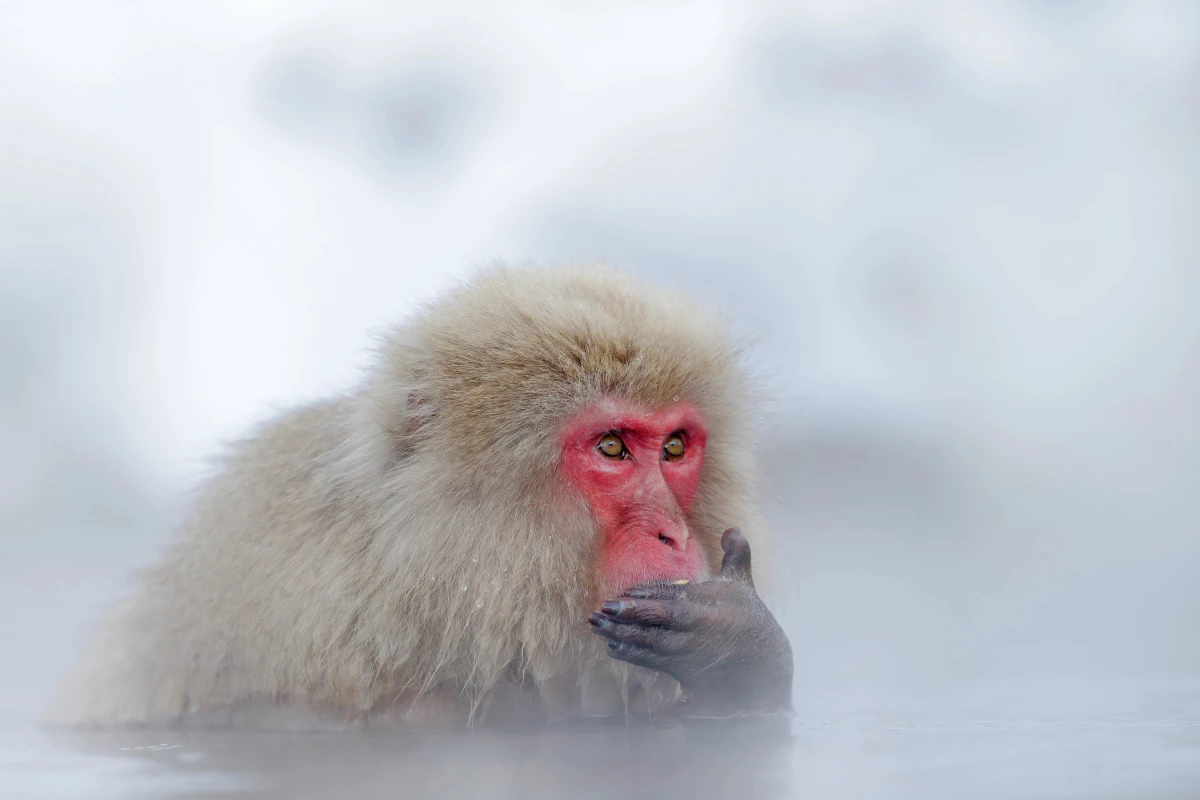Science
Revolutionary Study Reveals Cold Origins of Primate Evolution

A recent study has fundamentally altered the understanding of primate evolution, suggesting that the earliest ancestors of modern primates thrived in cold climates rather than the traditionally accepted warm tropical forests. Conducted by researchers from the University of Reading, this groundbreaking research spans an evolutionary timeline of approximately 66 million years and has implications for understanding how primates adapted to their environments.
By examining a diverse dataset of 479 primate species, including 178 extinct and 301 living species, the research team aimed to reconstruct the evolutionary relationships among these primates while assessing their climate tolerance and geographic distribution. The species analyzed were sourced from regions across North America, Europe, and Asia.
To challenge the prevailing hypothesis that primates evolved in warm, tropical climates, the researchers employed advanced statistical techniques and climate modeling. They combined genomic and fossil data with a detailed “supertree” of primate relationships, which includes both extinct and extant species. This intricate mapping allowed the researchers to analyze how various external factors influenced trait evolution over time.
Using Bayesian biogeographic modeling, the team calculated probabilities of different ancestral states concerning primate location and climatic conditions during their evolution. This methodology required adjustments for continental drift and plate tectonics, ensuring a comprehensive understanding of how climate and geography shaped primate ancestors.
The researchers utilized the Köppen–Geiger climate classification to categorize ancient climates based on temperature and rainfall patterns. By overlaying paleoclimate reconstructions with paleogeographic maps, they created an ancient climate atlas that reveals the environmental conditions in which early primates thrived.
What emerged from this exhaustive analysis is a picture of early primate ancestors that likely endured extreme seasonal fluctuations, experiencing hot summers and icy winters. This adaptability suggests that these ancient primates were resilient organisms, capable of surviving in harsh environments and possessing a broad diet to cope with variable resource availability.
According to the study, the first primates likely originated in cold climates in North America, challenging a narrative that has been widely accepted for over fifty years. Lead author Jorge Avaria-Llautureo stated, “For decades, the idea that primates evolved in warm, tropical forests has gone unquestioned. Our findings flip that narrative entirely. It turns out primates didn’t emerge from lush jungles – they came from cold, seasonal environments in the Northern Hemisphere.”
The research indicates that primates capable of surviving these harsh conditions were biologically fit enough to reproduce and expand into new territories. As climates shifted, those that adapted effectively could migrate and diversify, leading to the evolution of many species that eventually inhabited tropical forests.
Interestingly, the study posits that early primates may have employed hibernation strategies to survive freezing winters, similar to modern bears. This behavior could involve slowing their heart rate and entering a state of torpor during the coldest months to conserve energy. Certain small primates, such as dwarf lemurs from Madagascar, still exhibit hibernation behaviors, showcasing their remarkable adaptation to extreme climates.
As contemporary primates face significant environmental challenges, insights from their ancient ancestors’ adaptations could inform conservation efforts. Avaria-Llautureo noted, “Understanding how ancient primates survived climate change helps us think about how living species might respond to modern climate change and environmental changes.”
The findings of this pivotal research have been published in the journal Proceedings of the National Academy of Sciences, marking a significant contribution to the ongoing exploration of primate evolution and climate adaptability.
-

 Technology4 months ago
Technology4 months agoDiscover the Top 10 Calorie Counting Apps of 2025
-

 Health2 months ago
Health2 months agoBella Hadid Shares Health Update After Treatment for Lyme Disease
-

 Health3 months ago
Health3 months agoErin Bates Shares Recovery Update Following Sepsis Complications
-

 Technology3 weeks ago
Technology3 weeks agoDiscover 2025’s Top GPUs for Exceptional 4K Gaming Performance
-

 Technology2 months ago
Technology2 months agoElectric Moto Influencer Surronster Arrested in Tijuana
-

 Technology4 months ago
Technology4 months agoDiscover How to Reverse Image Search Using ChatGPT Effortlessly
-

 Technology4 months ago
Technology4 months agoMeta Initiates $60B AI Data Center Expansion, Starting in Ohio
-

 Technology4 months ago
Technology4 months agoRecovering a Suspended TikTok Account: A Step-by-Step Guide
-

 Health4 months ago
Health4 months agoTested: Rab Firewall Mountain Jacket Survives Harsh Conditions
-

 Lifestyle4 months ago
Lifestyle4 months agoBelton Family Reunites After Daughter Survives Hill Country Floods
-

 Technology3 months ago
Technology3 months agoUncovering the Top Five Most Challenging Motorcycles to Ride
-

 Technology4 weeks ago
Technology4 weeks agoDiscover the Best Wireless Earbuds for Every Lifestyle





















